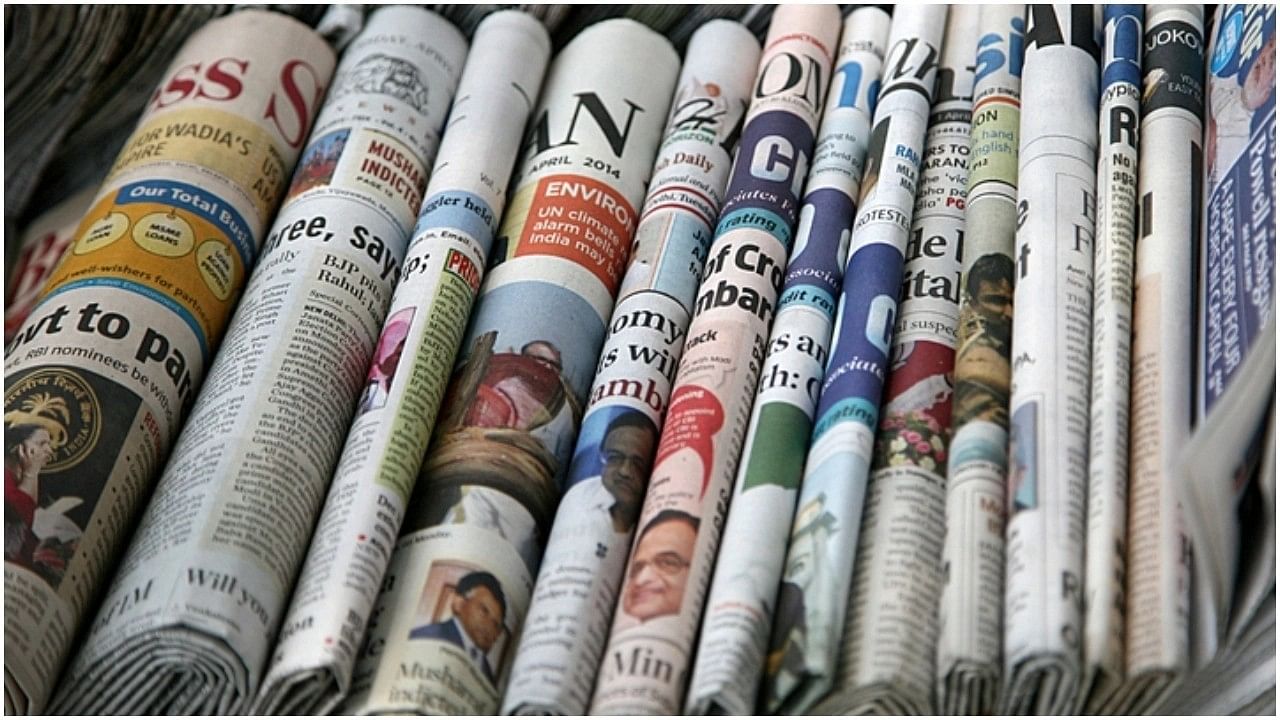
Representative image of newspapers.
Credit: iStock Photo
New Delhi: Just days ahead of the last phase of the Lok Sabha election, press bodies have come up with a draft bill to bring in more media transparency and free the media from the executive's control.
The draft Media Transparency (And Accountability) Bill, 2024, which was drawn up by the Press Club of India and was unveiled on Tuesday by 26 press bodies, mandates the setting up of a National Media Council to curb unfair media practices and the control of any government on the media sector, the setting up of a National Media Fund for providing initial funding to media start-ups, and the mandatory disclosure of ownership patterns.
Significantly, the council will have the power to direct the government to allocate or deallocate every existing allocation regarding advertising to ensure no unfair advantage and the power to grant permissions for any criminal proceedings against any media outlet or any of its employees for any journalistic story or activity.
The Caravan executive editor Hartosh Singh Bal, who is part of the seven-member committee that drafted the legislation, said that this is not a complete overhaul but a beginning, and that this is a first in a list of three such bills.
"Mainstream media barely exists today on its own terms, there is no freedom of media due to a coercive control of the government through financial engagements and due to the ownership pattern of the media. The bill tries to address two things – first, details of who owns media, its funding pattern, the share of ads from the government, etc. This transparency, through a voluntary mechanism, can make the media accountable without being controlled. The bill also addresses the allocation of ads to ensure there’s no unfair practice,” Bal said.
It must be added that the Congress, in its manifesto, has also pledged to stop monopolies and make it mandatory for media houses to reveal details of media ownership. The draft bill, which was made public on Wednesday, will be up till June 30 for suggestions from the public, after which a final draft will be presented to the government.
The council, as per the provisions, will have as members a retired Supreme Court Judge or retired Chief Justice of any High Court, a journalist representative with 25 years of experience — one each from press bodies such as the Editors Guild of India and DIGIPUB, one from a collective of the Press Club of India (Delhi), Press Club of Mumbai (Mumbai), Press Club of Chandigarh (Chandigarh), Press Club of Kolkata (Kolkata), Press Club of Bangalore (Bengaluru), one from the News Broadcasters & Digital Association and one from the Indian Newspaper Society.
An MP from each recognised national party as well as the top five state parties will be members, too. While membership is voluntary, to be a member, a media entity must have disclosed their ownership pattern.